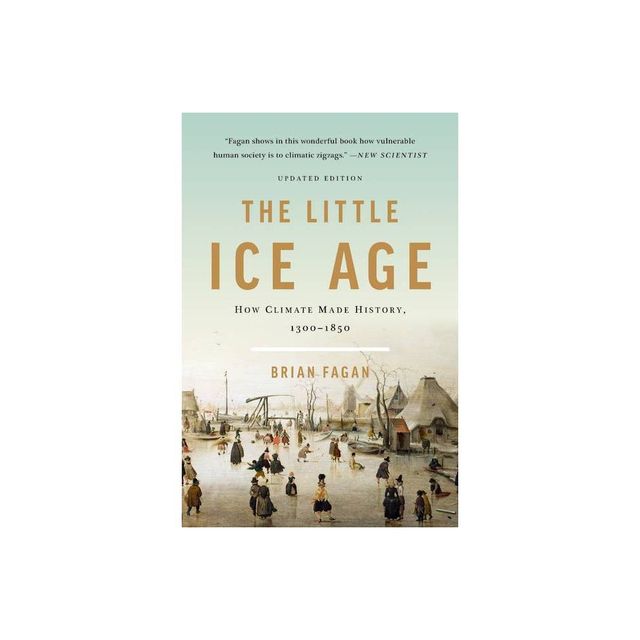Home
Nature's Mutiny: How the Little Ice Age of Long Seventeenth Century Transformed West and Shaped Present
Loading Inventory...
Barnes and Noble
Nature's Mutiny: How the Little Ice Age of Long Seventeenth Century Transformed West and Shaped Present
Current price: $19.99


Barnes and Noble
Nature's Mutiny: How the Little Ice Age of Long Seventeenth Century Transformed West and Shaped Present
Current price: $19.99
Loading Inventory...
Size: Audiobook
*Product Information may vary - to confirm product availability, pricing, and additional information please contact Barnes and Noble
“A sweeping story, embracing developments in economics and science, philosophy and exploration, religion and politics. . . . Beautifully clear.”— John Lanchester,
The New Yorker
Hailed as an “arresting” (Lawrence Klepp,
New Criterion
) account,
Nature’s Mutiny
chronicles the great climate crisis of the seventeenth century that totally transformed Europe’s social and political fabric. Best-selling historian Philipp Blom reveals how a new, radically altered Europe emerged out of the “Little Ice Age” that diminished crop yields across the continent, forcing thousands to flee starvation in the countryside to burgeoning urban centers, and even froze London’s Thames, upon which British citizens erected semipermanent frost fairs with bustling kiosks, taverns, and brothels. Highlighting how politics and culture also changed drastically, Blom evokes the era’s most influential artists and thinkers who imagined groundbreaking worldviews to cope with environmental cataclysm.
As we face a climate crisis of our own, “Blom’s prodigious synthesis delivers a sharply-focused lesson for the twenty-first century: the profound effects of just a few degrees of climate change can alter the course of civilization, forever” (Laurence A. Marschall,
Natural History
).
The New Yorker
Hailed as an “arresting” (Lawrence Klepp,
New Criterion
) account,
Nature’s Mutiny
chronicles the great climate crisis of the seventeenth century that totally transformed Europe’s social and political fabric. Best-selling historian Philipp Blom reveals how a new, radically altered Europe emerged out of the “Little Ice Age” that diminished crop yields across the continent, forcing thousands to flee starvation in the countryside to burgeoning urban centers, and even froze London’s Thames, upon which British citizens erected semipermanent frost fairs with bustling kiosks, taverns, and brothels. Highlighting how politics and culture also changed drastically, Blom evokes the era’s most influential artists and thinkers who imagined groundbreaking worldviews to cope with environmental cataclysm.
As we face a climate crisis of our own, “Blom’s prodigious synthesis delivers a sharply-focused lesson for the twenty-first century: the profound effects of just a few degrees of climate change can alter the course of civilization, forever” (Laurence A. Marschall,
Natural History
).














